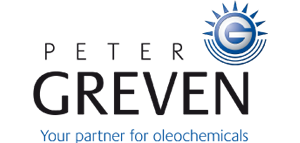
UPDATE CLIMATE PROTECTION STRATEGY
Last year, we used our website as a platform to present our climate protection strategy. It is a fundamental part of the transition to a sustainable economy. We are continuously working to reduce both our greenhouse gas emissions and our dependence on fossil raw materials, even as production grows.
In the meantime, we have expanded our objectives and developed a detailed transition plan with measures to achieve these goals. The targets have been verified by the Science-Based Targets initiative (SBTi) and published on the SBTi homepage:
By 2030, we aim to reduce on-site CO2 emissions (Scope 1 and Scope 2 - market-based) by 46% compared to the base year 2019.
By 2030, we intend to achieve net-zero emissions at our subsidiary for occupational skin protection, Peter Greven Physioderm GmbH in Euskirchen, DE.
By 2035, we want to achieve net-zero emissions at our headquarters in Bad Münstereifel, DE.
By 2050, we aim for net-zero emissions across the entire corporate group.
This year, we will also measure our global Scope 3 emissions, which are the emissions along our supply chain. This will be carried out in close collaboration with our suppliers. Based on the results, we will also develop specific reduction targets for this emission type.
To achieve our ambitious climate protection goals, we have already initiated various measures to minimize emissions as far as technically and economically feasible, aiming for deep decarbonization. These include:
Reducing site-specific direct emissions (Scope 1) through continuous improvement of energy efficiency and transitioning energy supply from fossil to renewable sources.
Transitioning our company vehicles to electric vehicles.
Reducing indirect emissions from energy consumption by increasing the use of renewable energy sources through on-site green electricity generation or purchasing green electricity on the market.
Reducing waste through internal waste management and supporting the circular economy.
As a company in the oleochemistry sector, our business model is based on the production of sustainable products using natural oils and fats. Therefore, most of our products are already made from bio-based materials, contributing to the defossilization of the chemical industry and the industries of our customers, while offering a future-proof product portfolio. As a member of the Renewable Carbon Initiative, we support the transformation of the chemical industry by transitioning from fossil to renewable carbon for organic chemicals and materials. In our procurement and development processes, we continuously evaluate bio-based, recycled, or CO2-based alternatives for our few remaining non-bio-based raw materials.
Additionally, we ensure that we use sustainably certified qualities that have a significantly lower footprint compared to conventional goods.
With all these measures, we will further align our product portfolio with renewable raw materials, products with a low Product Carbon Footprint, high environmental compatibility, and long-lasting, biodegradable and recyclable solutions for the circular economy.


